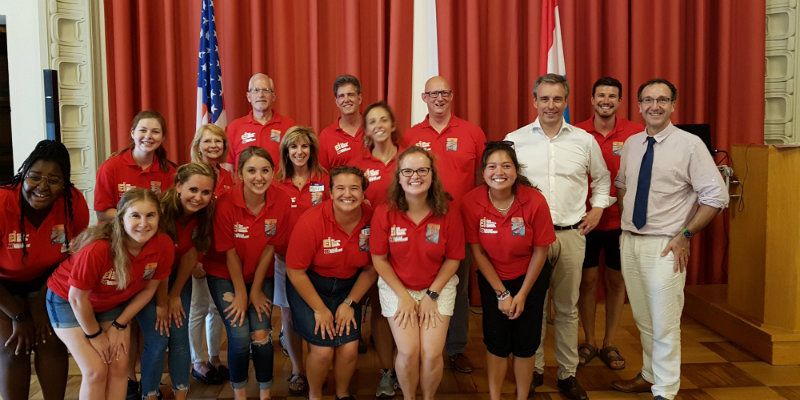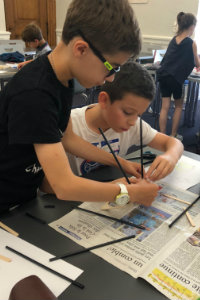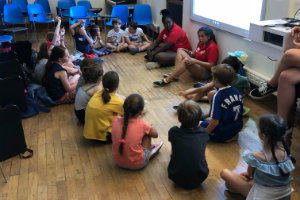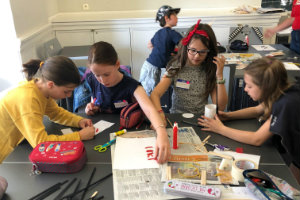Miami Students Lead Multicultural English-language Learning Camp in Luxembourg


James M. Loy, Miami University
It’s not often you find yourself teaching the daughter of the Minister of Education for an entire European nation. But in Luxembourg this summer, that happened for Cara Severson, a Miami University senior studying early childhood education (ECE).
“That was really cool!” she says. “His daughter was actually in my group. It was intimidating at first. But it was super cool to meet him, and to learn about their philosophies of education, and how they are different from American schools. It was a great experience for me, as an incoming professional, to talk to people and get those communication skills.”
Severson, along with eight other Miami teacher education students, met Claude Meisch while teaching at the Miami University John E. Dolibois European Center (MUDEC), where they hosted a two-week English-language learning (ELL) summer camp for nearly 90 school children from 20 different countries.
 For the school children, it was a fun and enriching way to strengthen their English-speaking skills, while also learning about U.S. culture. For the Miami students, it was an opportunity to gain practical and professional experience, especially for those interested in teaching in diverse settings.
For the school children, it was a fun and enriching way to strengthen their English-speaking skills, while also learning about U.S. culture. For the Miami students, it was an opportunity to gain practical and professional experience, especially for those interested in teaching in diverse settings.
“I'm hoping that I can use the experiences I gained through this Luxembourg trip by working with students from different cultures, who speak different languages,” Severson says. “American schools are just getting more and more diverse. So I hope that when I teach, I'll be able to communicate with families who may not speak much English, or that have cultural differences. I hope to make them feel welcome in the classroom.”
Miami has a long history with Luxembourg, where many students routinely study abroad at the university’s Dolibois European Center.
But this summer camp is new.
The idea began with Thierry Leterre, dean of MUDEC, and Gerard Zens, director of the International School in Differdange.
 Dean Leterre later contacted James Shiveley, a Miami professor of teacher education, about crafting an ELL experience that would be fun and enriching for multicultural children. Shiveley then coordinated the effort with Brenda Dales, a Miami assistant teaching professor, who helped students prepare for the trip a full semester in advance.
Dean Leterre later contacted James Shiveley, a Miami professor of teacher education, about crafting an ELL experience that would be fun and enriching for multicultural children. Shiveley then coordinated the effort with Brenda Dales, a Miami assistant teaching professor, who helped students prepare for the trip a full semester in advance.
“We were building the whole schedule from scratch, with support from Dr. Dales and Dr. Shiveley, of course,” says ECE major Carmelita Mays. “But it was largely our responsibility to write the lessons, come up with the things that we wanted to cover, and to make sure that we were utilizing language. And when we were there, we were teaching everything. So we really got the chance to teach and to lesson plan.”
During the first week, Miami students worked with middle schoolers. During the second, they interacted with elementary school children. And their days throughout each week were filled with lessons and activities that encouraged everyone to write and speak in English.
The children created collages and wrote poems based on American music, entertainment, landmarks, and events, and more. They also spent time outside to enjoy a variety of games and physical activities that also required conversational interactions.
“Even the children, who at the beginning were very afraid to speak English, or who struggled with comprehension, at the end, they were a lot more confident in their abilities,” says Mays, “which was really great to see.”
The camp even caught the attention of the national news media, and even before it was over, the future of the program already seemed bright.
“We had a cookout for the children and their families, and the parents were already asking when they could sign up for next year?” Dales says. “So it was very successful.”

